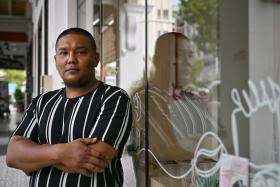Pritam Singh calls for universal minimum wage from $1,300 a month
Continuing the minimum wage debate, Workers' Party (WP) chief Pritam Singh yesterday called for a universal minimum wage starting at $1,300 a month for Singaporean workers.
In his Facebook post, the Leader of the Opposition said such a move is "not just a moral imperative, it is an act of national solidarity, one that is even more relevant in today's economic environment".
His comments follow Sunday's announcement that a workgroup comprising government officials, unionists and employers will be formed to look into lifting the wages and well-being of low-income workers.
This will include studying how Singapore's tripartite partners can further expand on the Progressive Wage Model (PWM) and partner companies to raise productivity.
Mr Singh noted the Government's minimum wage-plus approach includes other aspects such as sectoral productivity and career progression, which "cannot be objectionable".
But the problem with this approach is that it takes too long to implement, he said.
The PWM, which was launched in 2012, is a framework in which wages are pegged to skills, productivity and career development. It now covers around 80,000 workers in the cleaning, security and landscaping sectors.
Mr Singh asked the workgroup to consider a parallel effort to implement a universal minimum wage with a $1,300 base that is subject to regular review, even as it explores sectoral improvements "or what is effectively the plus side of minimum wage plus".
The call for a minimum wage was made by WP MP Jamus Lim during the debate on the President's Address last month.
In response, PAP MPs like Minister of State for Manpower Gan Siow Huang had warned a minimum wage would result in low-wage workers losing jobs.
Senior Minister Tharman Shanmugaratnam pointed out that the existing PWM and its sectoral approach enable the minimum rung to be set at suitable levels for each sector, whereas a single national minimum wage would force a decision on where to place it - which could be too low or too high.
But he also said he would not "exaggerate the differences" between the PWM and the minimum wage model, calling the PWM "minimum wage plus".
During the debate, Manpower Minister Josephine Teo noted that in the last five years, workers in PWM sectors have seen cumulative wage growth of around 30 per cent.
Get The New Paper on your phone with the free TNP app. Download from the Apple App Store or Google Play Store now


